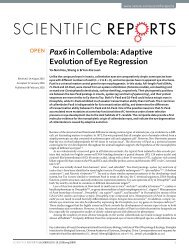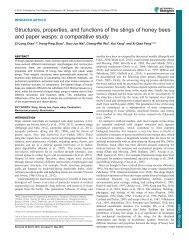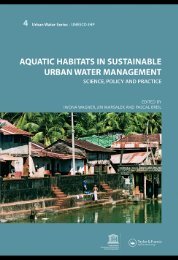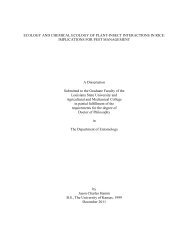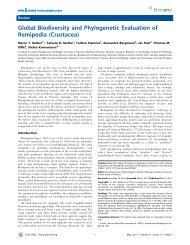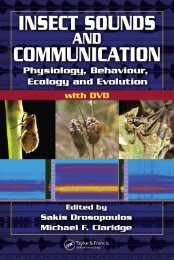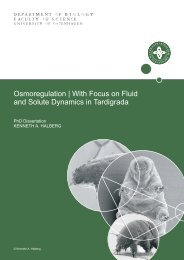You also want an ePaper? Increase the reach of your titles
YUMPU automatically turns print PDFs into web optimized ePapers that Google loves.
30<br />
Economic Arachnology<br />
The <strong>Arachnida</strong>, mites obviously excepted, are not animals that have<br />
attracted attention because of their evident economic importance.<br />
Indeed, it is possible to argue that the relative neglect from which they<br />
have suffered is due to this fact. Spiders in particular, the commonest<br />
and most obvious of the <strong>Arachnida</strong>, seem to do little direct damage<br />
beyond that of nuisance and are of little apparent value. Of the rest,<br />
scorpions in certain countries are poisonous or are at least an irritation,<br />
but the others are inconspicuous. As far as can be seen, every one of the<br />
Solifugae, Palpigradi, Opiliones, Pseudoscorpiones and Ricinulei might<br />
be simultaneously obliterated without any immediate effect on prices in<br />
the world's markets.<br />
This, however, takes a narrow view of economic importance, limiting<br />
that term only to such creatures as may be described as damaging pests<br />
or obvious beneficial forms. \Vhen spiders catch flies, as they do in vast<br />
numbers, and when the other <strong>Arachnida</strong> capture whatever their prey<br />
may be, they are, one and all, playing their parts in the universal drama<br />
of life. They operate within the balance of nature and to this extent<br />
each one is important. For we know, only too well, how surprising may<br />
be the consequences when either thoughtless acts of men or natural<br />
cataclysmic events disturb this equilibrium, and how the accidental<br />
removal of some natural enemy may be followed by the almost unlimited<br />
increase of a pest species until subsequent happenings limit its<br />
reproduction and the balance is restored.<br />
Recent studies have demonstrated that spiders feed upon, and may<br />
be capable of regulating, household pests, field crop pests, orchard<br />
pests and forest pests. Riechert has stated "Spiders clearly serve as<br />
stabilizing agents of invertebrate populations both in natural habitats<br />
and in the monotypic areas associated with agricultural lands".<br />
\Vho is to say that the same may not be true for those scorpions and<br />
Solifugae that feed gluttonously on termites, and pseudoscorpions that<br />
feed on Collembola and Psocoptera? Even the long-legged harvestman,




